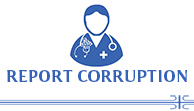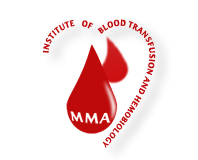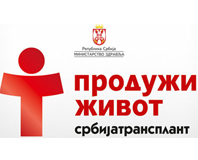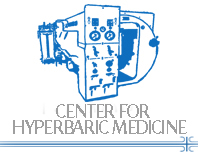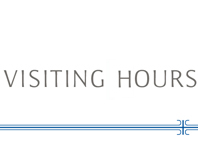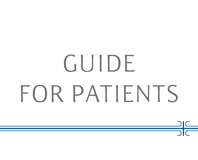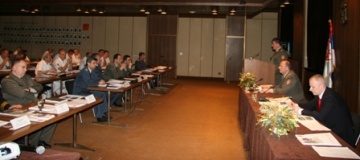
The MMA in the Year of 2009: Achieved Results and Missions ahead of Us
08. 02. 2010
Belgrade, February 08, 2010. – ‘A considerable increase in the number of rendered medical services of 10-20%, technological renewal, the opening of the MMA’s School for Advanced Studies, accreditation of academic residence and PhD programs, recognition of scientific-research potential, accreditation of laboratories and re-accreditation of ISO standards, recognitions and acknowledgement for successful provision of medical support to the participants in the Universiade 2009, deployment of the MMA’s surgical team to the UN peacekeeping mission in Chad, intensive international military medical cooperation as well as cooperation with Serbian Orthodox Church have marked the work of the Military Medical Academy in the previous year’, said Major-General, Prof. Dr. Miodrag Jevtić in his opening speech at the meeting devoted to the analysis of MMA’s operational capability.
In addition to the most responsible MMA’s leaders, an active part in this meeting was taken by the State Secretary for Military Health, Dr. Zoran Vesić, Brigadier General Veljko Todorović, the head of the MoD Health Department, Brigadier General Slađan Đorđević, the head of the MoD Personnel Department, Brigadier General, Assist. Prof. Dr. Mladen Vuruna, the head of the Military Academy, the representatives of the Defence Inspectorate, members of the Defense Ministry and the Armed Forces as well.
The issues relating to the conditions under which the MMA’s operational capability was build and maintained throughout the previous year, achieved results and action plans projected for the future were discussed by the MMA’s deputy head, Col. Prof. Dr. Nikola
Filipović, assistants to the MMA’s head, colonels Svetislav Mihajlov, Mićo Čudić, Prim. Milorad Rabrenović, MD, Mladen Milivojević, MD, Stanojko Mitić, Lt.Col. Gradimir Petrović, AF civilian employees Prof. Dr Mirjana Životić-Vanović, Fellow Researcher Dr. Elizabeta Ristanović and Prof. Dr Mirjana Antunović, as well as colonels Academician Prof. Dr. Miodrag Čolić, Prof. Dr. Nebojša Jović, Nikola Zec and Lt.Col. Negovan Jovanović.
The Military Medical Academy is a medical city which admits over 1200 patients on a daily basis, and receives around 8000 visits for various other purposes. It is operated by 2704 full-time employees. That number is expected to be increased very soon, since, an open competition for physicians and medical technicians admissions was announced last. year. Strengthening of the MMA’s workforce through recruitment and hire processes is the strategic imperative of our institution, imposed by a constant increase in the number of patients and the need for providing adequate medical services in line with the reputation and tradition of the Military Medical Academy as well as the requirements of modern medicine.
In the year of great economic crisis, the MMA’s employees managed to overcome all the challenges thanks to good organization and effective management policy and keep pace with contemporary trends of world medicine, the fact proved by a great number of visits paid by the most eminent military medical institutions in the world as well as established successful cooperation.
As for the MMA’s media exposure, there were within the last year 3.666 supplements on its work and results achieved in 2009, which were published in national print and electronic media. |More than 96% of those supplements carried positive or neutral tone. The MMA’s web site was also highly visited.
Treatment and Medical Prevention and Protection
During 2009, the MMA admitted 35000 patients for hospital treatment, had 317000 bed-days filled, and reduced the average length of treatment as well. The inpatient bed occupancy rose to around 75%, of which the most referred to civilian insured, the number of which has been recorded to be in constant increase over the recent period due to the agreement signed the National Public Health Institute, which is being successfully implemented.
In 2009, 59 bone marrow, 2 liver and 24 kidney transplants were performed at the Military Medical Academy. The Group of Surgical Clinics treated 17.105 patients with the average length of hospital stay of around 8 days; it performed 24.390 surgeries and introduced 25 new surgical procedures into its clinical practice. The number of patients visiting this Group of clinics is in a constant increase, and the problems encountered in the practice may be attributed to insufficient personnel and difficult provision of medical material. The similar problems were recorded in the Group of internal clinics. The Group of Neuropsychiatric clinics also reported about the increased number of treated cases. There is an urgent need to organize the Brain Stroke Unit within that Clinic to ensure quality care for brain stroke patients.
Within the last year, the Group of Diagnostic Institutes introduced many new technologies, particularly in the domain of radiology. New 3T MRI scanner was installed and new Angio Room was opened at the Radiology Institute. The Institute of Blood Transfusion underwent considerable technological renewal by introducing advanced blood test technologies. Dentists were operating at its full capacity at the Military Medical Academy, and the necessity to organizationally consolidate all dental disciplines to operate under the framework of the Dental Clinic was stressed. The MMA’s Emergency Center received over 40.000 patient visits, whilst Poison Control Center services were sought by around 8500 patients. The number of patients examined at the Outpatient Diagnostic Clinic rose to near half a million of which 300000 underwent the initial examinations while more than 150000 were follow-up visits.
Within the panel discussion framework, heads of Groups of clinics and institutes and Outpatient Diagnostic Clinic retrospectively reviewed a 2-year experience of functional integration of our institution into the National Public Health System. The MMA’s clinics and the Outpatient Diagnostic Clinic fulfilled all undertaken responsibilities, and integration into the Public Health System brought the Military Medical Academy more patients to care for as well as diversity of pathology, emergency cases in the first place.
Preventive Medicine plays a significant role in the work of the Academy. Many significant organizational changes were made in that Sector over the last year, with the intention to improve the operation of this Service. The number of services relating to medical supervision increased, and significant financial resources were provided through rendering highly specialized laboratory services. However, the lack of sufficient number of non-medical personnel of specific profiles was the problem this Service as well had to deal with .
Education and Scientific-Research Work
Education, scientific-research and training at the Military Medical Academy were the activities that, rightly, attracted much public attention last year. The reason for that were the beginning of the MMA’s School for Advanced Studies, and accreditation of residency and PhD programs, by which the national higher education harmonization process was completed. All required by-laws and decisions on the work of the MMA’s School for Advanced Studies were adopted, thus, 20 cadets having completed the basic military medical training program, began their medical studies. From the very beginning of the school year, each student was assigned a mentor to monitor students' work and education based on the highest standards. To meet such criteria, the classroom and the premises of the Boarding School were also renovated and upgraded.
The two Classes of the Reserve Officers School students completed their training in the Center for Medical Services Organization and Tactics and Veterinary Training Center. Those two organizational units are currently undergoing some restructuring, and the Medical and Veterinary Training Center is to be established.
Within the scientific-research domain, there are currently 57 clinical trials and 5 basic tasks under way. They are conducted within the framework of two mega scientific projects functionally coordinated by the Medical Research Institute. As the result of this work, a great number of papers have been published in international high impact scientific journals, whilst, the MMA’s members reported on their work at 117 national and international scientific and medical congresses.
Medical Supply and Logistic support
All the responsibility in the area of medical supply at the Military Medical Academy lies with the Pharmacy Institute. Insufficient personnel and inadequate storage premises and facilities are problems existing in this area for years. It has been pointed out that medical supply should be concentrated in one place or entrusted again to the Military Medical Academy as its responsibility to ensure efficacy and more rational approach, as well as necessity for additional rationalization of planned procurement of medical dispensables along with improvement of the control of their consumption.
Logistics support to a colossus such as the Military Medical Academy represents a complex and responsible set of tasks including continuous supervision and maintenance of over 36000 apparatuses of average length of lifespan of 12 years, the infrastructure and material-technical supply. In 2009, air chambers of the MMA’s air conditioning system and compressors were replaced; bathrooms and sanitary junctions within the MMA building were refurbished; Functional Gastroenterology and Invasive Lung Diagnostic Units, new Angio Room, and MRI Unit were reconstructed and technically renovated.
In the period to come, the MMA’s Logistics Sector is expected to be very busy with further technical/technological renovation of the Military Medical Academy, upgrading the existing equipment, Hospital-Information System and infrastructure.
Missions ahead of us
The final assessment of the MMA’s operational capability was made by the MMA’s head, Major General Prof. Dr. Miodrag Jevtić.

